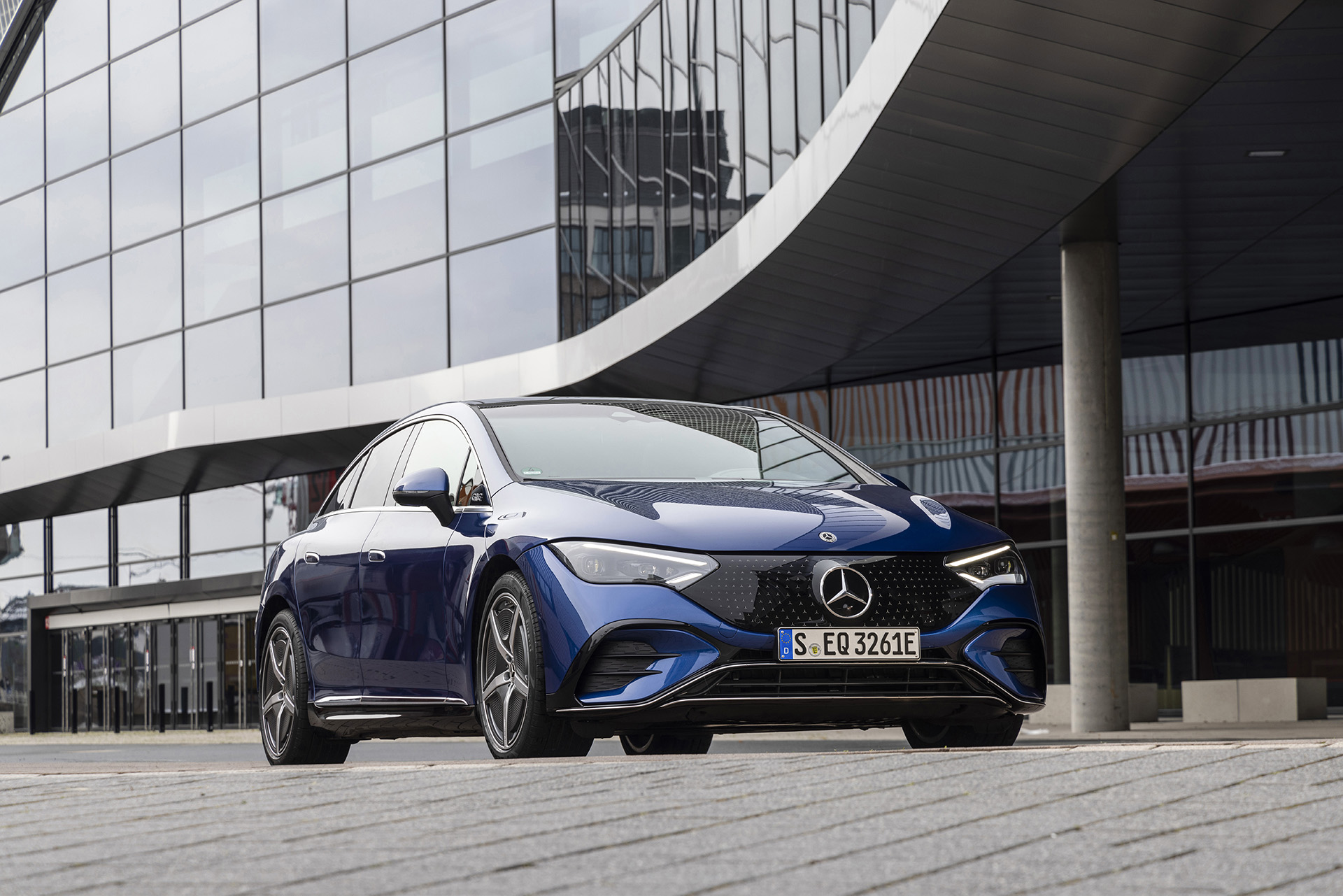Mercedes-Benz plans to have an all-electric fleet by 2030 as part of its commitment to reducing carbon emissions, but won’t stop at tailpipe emissions to achieve that goal. The German carmaker will also employ CO2-neutral manufacturing processes to lower its emissions by 50% compared to 2020 levels.
More than half of a vehicle’s lifetime emissions come from the actual production of the vehicle itself, and Mercedes-Benz is attacking this problem in several ways. The first of which is by producing batteries in a CO2-neutral way, which would reduce the overall lifetime emissions of the vehicle by around 20%.
Even after the batteries have reached the end of their life, the German carmaker has a plan to recycle the cells by creating a CO2-neutral recycling facility in Kuppenheim, Germany. The recycling rate of the battery packs will be increased to 96% thanks to a new hydrometallurgical process, says Mercedes.
Read More: Germany Wants To Move Up Timeline To Remove Incentives for PHEVs and EVs
The metal the vehicles are built with will be “green” as well, which means that all steel and aluminum sourced for the vehicles will be made using low or zero-CO2 production processes. To make this happen, investment has been made in Swedish start-up H2 Green Steel (H2GS) and hopes to implement the green metal in a number of models as early as 2025.
The interior of a vehicle can also be a source of materials that require high emissions to produce and sustainable materials have already been introduced, such as fabrics made of 100% recycled PET plastic bottles, as well as carpet made from recovered fishing nets and old carpet remnants.
All of the brand’s plants produce vehicles in a CO2-neutral way as of 2022, and Mercedes-Benz also hopes to add solar and wind power to many of its facilities to further expand the production of renewable energy. The brand plans to increase the use of recycled materials in its vehicles to 40% by 2030.
In addition to the brand’s CO2-neutral manufacturing processes, it will also aim to have half of its fleet with plug-in hybrid or fully electric powertrains by 2025. In Europe, the Mercedes Me charging network features 300,000 public stations, with a sufficient amount of that power coming from renewable sources.




